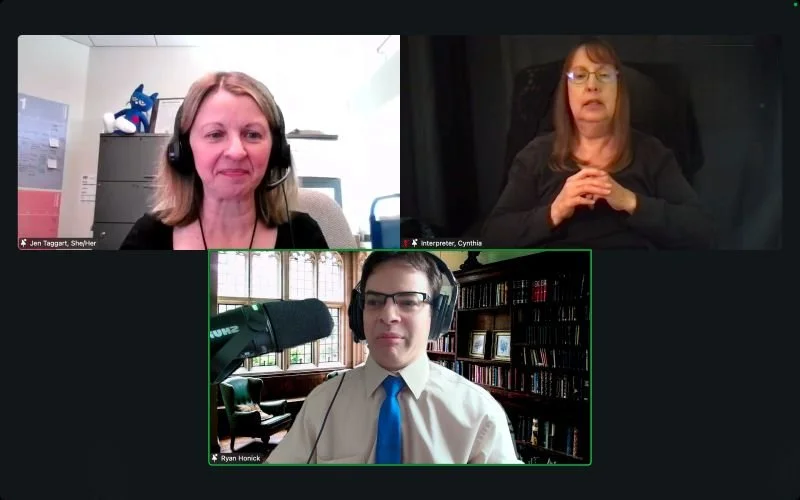The image shows a close-up of a document titled "Termination of Employment" placed on a wooden desk. To the side, there is a partial view of a keyboard and a yellow-tinted pair of eyeglasses resting on a closed book.
The federal government is currently experiencing a period of significant change in areas such as Diversity, Equity, and Inclusion, return-to-office mandates, and executive orders that directly affect federal policies. As a long-time federal employee, I find myself closely observing these developments and working to adapt—just like many of you. This is undoubtedly a time of uncertainty for federal workers, and understandably so. Recent rollbacks in DEI programming, elimination of related roles, and the enforcement of RTO mandates are reshaping the workplace landscape at a rapid pace.
For me, these changes feel personal. As someone with a disability—navigating chronic pain, a visual impairment, and reliance on assistive technology—this shifting landscape poses significant challenges. The pace of change is unsettling, but it’s important to acknowledge that much remains unknown. While the push for these policy changes is concerning, full implementation will take time. Many of the fears we face today may not materialize immediately.
Despite the uncertainties, one thing remains clear: we all share a responsibility to uphold the humanity of our workplaces. Whether as colleagues or leaders, it’s on us to ensure that everyone—regardless of ability—can succeed in the roles they were hired to fulfill. While DEI initiatives and remote work policies are evolving, some measures remain stable for now.
The current RTO memo includes language that supports remote work as a reasonable accommodation for employees with disabilities. This provision is a step in the right direction. However, the future of Schedule A—a hiring authority designed to bring individuals with disabilities into federal service—is less certain. While Schedule A has its limitations, it has served as a vital pathway into federal employment for many. For now, it remains intact, offering a glimmer of stability amidst the changes.
As federal employees, it’s easy to feel overwhelmed by the uncertainty and rapid shifts happening around us. But it’s important to take a moment to reflect and breathe. We are still in the early days of this administration, and much of what is being proposed will require time to take shape. The federal government’s processes are famously slow-moving, and significant changes often face bureaucratic resistance and legal challenges before they can be fully implemented.
This doesn’t diminish the real fears and concerns many of us are feeling. The anxiety around job security, workplace accessibility, and the future of DEI initiatives is valid and deeply felt. However, it’s also important to recognize that the laws protecting disabled workers have been hard-won and will not be easily undone. Legal safeguards and advocacy efforts remain powerful tools in preserving workplace equity.
As we navigate these turbulent times, let us move forward with care, grace, and resilience.



